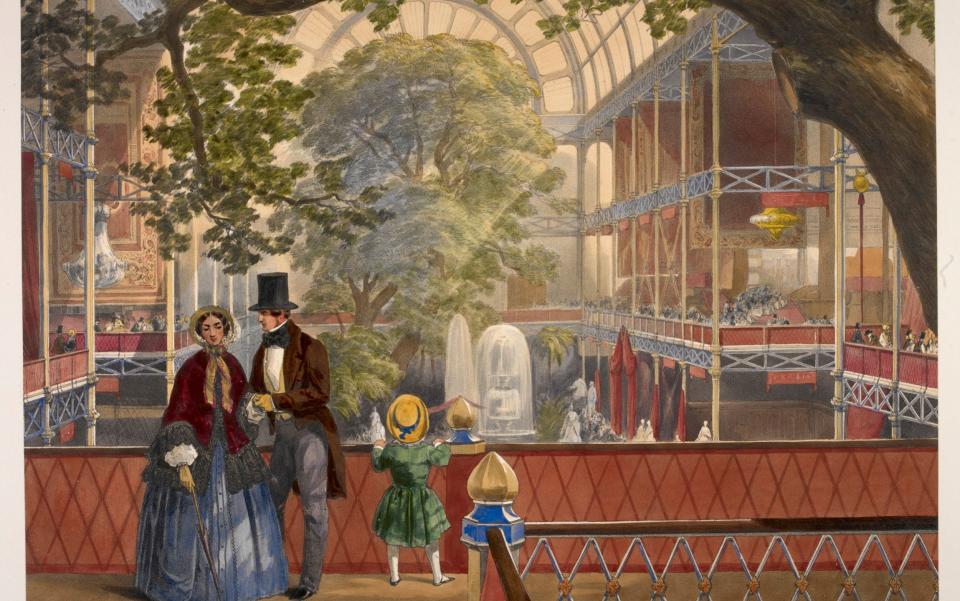Letters: Covid passports in Britain are a backdoor way of making vaccination compulsory

- Oops!Something went wrong.Please try again later.
- Oops!Something went wrong.Please try again later.
SIR – I am a lifelong Conservative voter who has just read Michael Gove’s article on exploring the need for Covid Certification (Comment, April 4).
He calls it “exploring “ when he seems to have made his mind up and is looking for the best way to sell this Covid certification passport.
It means every adult would need a certificate or be denied entry to cinemas, theatres, football grounds, pubs, restaurants, etc. It seems like a backdoor way to get every adult vaccinated.
If he feels this way, Mr Gove should have the courage of his convictions and propose compulsory vaccinations.
Alan Taylor
Cuddington, Cheshire
SIR – Michael Gove invites Telegraph readers to share their views on his interest in Covid certification. My view is that his interest is similar to that of a cobra peering into a bird’s nest.
An Englishman’s freedom, under common law, to go about his business unmolested by the state is threatened more than at any time since the war.
As a former Conservative MP, I never thought I would see the day that my party’s leaders sought to extend control over our lives under the cover of such a mendacious scheme.
Now that those at risk are vaccinated, a genuine Conservative government would be doing the opposite, by removing all restrictions in line with the data.
John Sykes
MP for Scarborough & Whitby, 1992-97
Huddersfield, West Yorkshire
SIR – Boris Johnson told the nation not to meet indoors over Easter, even if vaccinated, as the vaccine does not give 100 per cent protection.
He is also developing a scheme for people to meet at indoor events, such as pubs and theatre, only if they have proof of vaccination.
So he is saying that after being vaccinated we can’t meet the family indoors, as we don’t have 100 per cent protection, but we can meet hundreds of strangers at indoor events. This must be one of the Government’s most contradictory messages.
This is a clear sign that it is no longer in control, it is not following science, it doesn’t know what it is doing and that policies are being made on a whim.
John Martin
Swarthmoor, Cumbria
SIR – I thought the Government had blown its “daft idea” budget on Test and Trace. Apparently not.
Paul Gaynor
Windermere, Cumbria
SIR – Lord Greenhalgh says that the Government has yet to rule out Covid certificates for churches. Will sidesmen be retrained as bouncers so that only those with the right papers will be allowed entry?
Dr Penelope Upton
Lighthorne, Warwickshire
SIR – We were assured all lockdown measures would end by June 21, provided Covid data were favourable. The notion of vaccination passports is yet another way of stopping the country getting back to normality.
Who really believes that when these passports are available another barrier will not be put up to our freedom?
Dr David Walters
Burton Bradstock, Dorset
SIR – I have just received an alert from the NHS myGP app informing me that the app will soon have the capability to show my vaccination status.
I have no qualms about holding evidence of vaccinations, but is the new app proposed by the Government providing something new? Or are we duplicating effort and expense and extending the timescale?
Colin Burton
Kingston, Devon
SIR – If vaccine passports become a reality I do hope that someone in authority remembers that quite a lot of us don’t have smartphones.
Eryl Tucker
Bedford
Litter can be beaten
SIR – I don’t have a specific solution to the nation’s appalling litter habit (Letters, April 2), but I am conscious of two significant changes in public behaviour that have been achieved through a combination of publicity and enforcement. I refer to the substantial reduction in tobacco smoking and the lower incidence of dog-fouled footpaths.
There remains some way to go in both cases, but their example suggests that with sufficient political resolve the high standards of other nations need not be beyond us.
W Stuart Hall
Mickleton, Gloucestershire
SIR – Reverse vending machines for bottles, cans and other recyclable materials that can recognise the item deposited and pay back actual money, rather than coupons, would go a long way to solving the problem.
William Molesworth
Peterborough
SIR – Patrick Williams (Letters, April 3) picked up 15 energy-drink cans and two rosé bottles on his verge in Kent.
On our regular litter pick of a section of C road here we have collected many Stella and Special Brew cans, whisky bottles and, inexplicably, numerous large jars of Tesco olives (empty).
M P Allez
Stoford, Wiltshire
Boat Race sinking feeling
SIR – As a supporter of the Boat Race since 1954, I watched with dismay as this year’s horrible presentation reached heights of uber-crassness normally reserved for the boxing fraternity. How much lower can the BBC sink in its sports presentations?
Peter Taylor
Tipton St John, Devon
SIR – What is it with the BBC and rivers? We had it messing up the Jubilee pageant on the Thames. Now, by the side of the Great Ouse, Oxford and Cambridge crews emerged from lock-up garages filled with disco lights, flanked by spasmodic flame throwers.
A W Fox
London W1
Giving children ideas
SIR – Since the introduction of sex education into the school curriculum seems to have produced a generation of sex pests, is it wise to start talking about race to kindergarten children?
David Archibald FRCS
Borgue, Kirkcudbright
Victims and convicts
SIR – There is a growing insistence that a person who makes a criminal complaint should be believed and treated from the outset as a “victim”.
The presumption that every complainant is telling the truth is inconsistent with the presumption that a person accused of a crime is innocent until proved guilty beyond reasonable doubt. Only if there is a conviction does a complainant become a victim.
There needs to be a public debate as to whether a complainant should be treated as a victim or whether an accused should continue to have the benefit of the presumption of innocence. I believe an accused should, but it is the view of a majority of those whom we elect to Parliament that should prevail.
The present position confuses complainants and should be clarified.
Rev His Honour Peter Morrell
Nassington, Northamptonshire
The doctor won’t see you now
SIR – Letters (April 2) on the inability of patients to see their GP chimed with my experience. Despite having an “accountable GP”, as printed on every prescription, I have not seen mine for 15 months.
Just before Christmas, I was diagnosed with bladder cancer by a GP trainee in the practice. I have subsequently had excellent treatment from my local (Covid-free) hospital.
In the intervening period, I sought a consultation, which was carried out on the phone by a locum who clearly had little idea of my medical history.
During the pandemic, every attempt I have made to see my GP has been met with stern resistance from gatekeepers manning the practice telephones.
On Friday, I wanted to book an appointment and went on to the myGP app, as recommended. There are no GP appointments available. My surgery is led not by doctors but administrators.
Philip Barry
Dover, Kent
Quite a big island
SIR – Michael Deacon wrote about the EU diplomat who said: “You might feel very happy on your little island when you are all vaccinated.”
I think Bill Bryson might have established the idea that we live on a small island, but anyone caring to look at a list of islands by size will find Great Britain in ninth place – hardly small, then, by world standards.
John Noc
Blackwater, Cornwall
Looking forward to fully grown elms

SIR – It was really gratifying to read Tim Richardson’s article about the attempts to introduce a variety of elm that isn’t susceptible to Dutch elm disease. I hope it succeeds.
Elms have continued to thrive here in Britain as saplings under 20 years old. It seems that only when the bark takes on the character associated with mature trees are they vulnerable to the disease – presumably as the Scolytus beetle finds places for its eggs and larvae.
There is every chance that eventually a solution will be found to let the elm thrive, but I fear that it is aeons away.
Ray Henderson
Linslade, Bedfordshire
Houses that the old or disabled can visit
SIR – We need to build homes fit for older and disabled people to live in.
A new analysis of local plans by Habinteg, the social housing provider, shows that 70 per cent of homes built in England over the next 10 years will not have to meet any accessible housing standard. Just one accessible home will be built for every 77 people. This is despite the fact that we have an ageing population and already one in five of us is disabled.
The Government is currently considering raising accessibility standards for new homes.
As it stands, 91 per cent of homes do not provide even the basic features to make them “visitable”. (This requires four features – level access to the entrance, a flush threshold, sufficiently wide doorsets and circulation space, and a loo at entrance level – to allow a disabled or older person to visit.)
Such a change in regulations is widely supported in the housing, charitable and disability sectors, and by builders and local government. We urge Robert Jenrick, the Secretary of State for Housing, to strengthen the mandatory accessibility standards without delay.
Caroline Abrahams
Charity Director, Age UK
Sue Adams
Chief Executive, Care & Repair England
Anna Dixon
Chief Executive, Centre for Ageing Better
Gavin Smart
Chief Executive, Chartered Institute of Housing
Kamran Mallick
Chief Executive, Disability Rights UK
Bryonie Shaw
Interim Chief Executive, Habinteg Housing
Jeremy Porteus
Chief Executive, Housing Learning & Improvement Network
Kate Henderson
Chief Executive, National Housing Federation
Alan M Jones
President, Royal Institute of British Architects
Fiona Howie
Chief Executive, Town and Country Planning Association
Letters to the Editor
We accept letters by post, fax and email only. Please include name, address, work and home telephone numbers.
ADDRESS: 111 Buckingham Palace Road, London, SW1W 0DT
FAX: 020 7931 2878
EMAIL: dtletters@telegraph.co.uk
FOLLOW: Telegraph Letters on Twitter @LettersDesk

